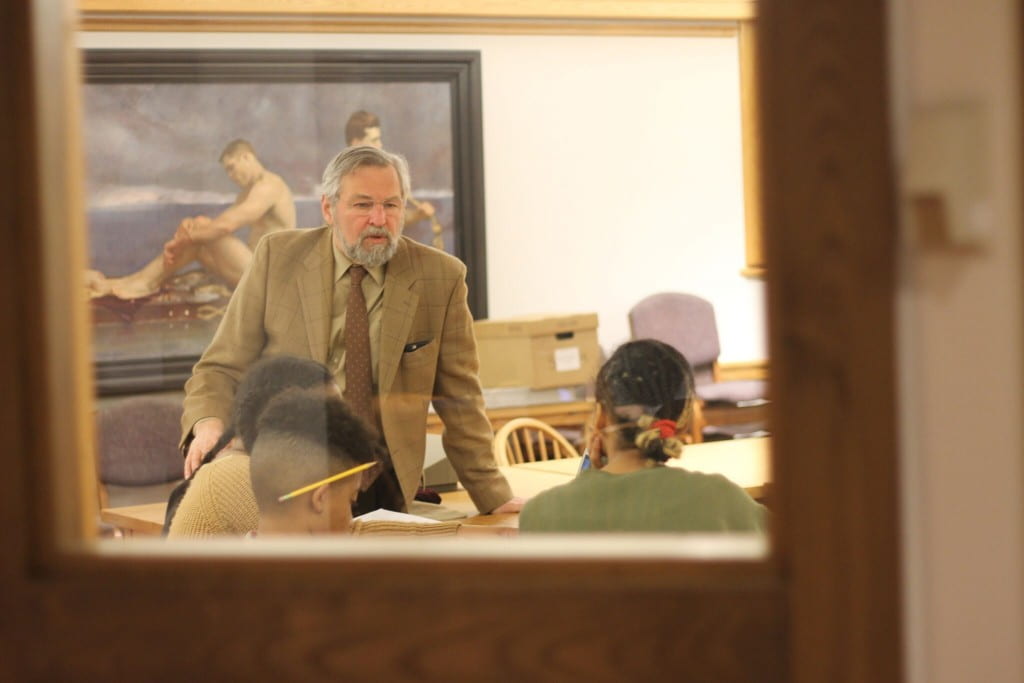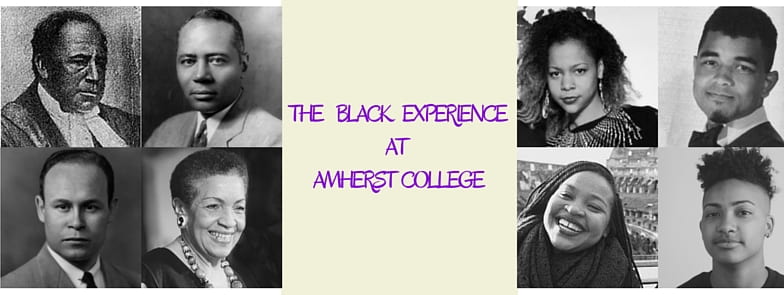Course Title: The Black Experience at Amherst College
Collaborators: Frost Library’s Digital Programs Department, Amherst College Archives and Special Collections, The Amherst College Alumni Association
Special Topics Course, Spring 2016
Number of Students: 4
Number of Professors: 2
Foundational Texts: Black Men of Amherst (by Harold Wade); Black Women of Amherst College (by Mavis Campbell)

What does it mean to be “black” at Amherst College? This seemingly unanswerable question often summons more questions than answers. Which students identify (or do not identify) as black? How many black experiences at Amherst exist (or don’t exist)? What can we learn from Amherst students of the African diaspora who actively challenge or defy American racial constructions through their identification with a specific national or cultural heritage? What is distinct about the Amherst experience for black students, faculty and staff? How does the black experience compare with the experiences of other students of color? What have black graduates done with their Amherst education? In what ways do the demographic, historical, and cultural contexts of Western Massachusetts influence the lives of those with African ancestry at Amherst? What about the black experience at a progressively more diverse Amherst College has changed (or not changed) over time? To what extent have administrative initiatives to promote and celebrate campus diversity succeeded in practically manifesting their promises? Above all, how have students of African descent shaped and been shaped by the character and history of the College?
This exploratory special topics course seeks to engage with these questions via historical, political, economic, and sociological frameworks through the support and guidance of Archives and Special Collections as well as the Digital Programs department of Frost Library. The Amherst College Alumni Association could also serve as a potential resource for students in connecting with and documenting the experiences of contemporary black graduates of Amherst.
Throughout the course, students will write short summaries and reflections about the monumental moments and movements within the black history of the College. Students will collectively work together to develop a blog site (using WordPress or a similar webspace) to document their archival explorations and contemporary reflections of black life in Amherst College history. A weekly class discussion would allow students to link contemporary conversations about identity on campus with what students discover in the archives of the College’s past. The role of student organizations like the Black Student Union and the African and Caribbean Student Union, campus publications, and theme houses in black students’ experiences will be considered from both historical and contemporary angles.
Students will be constantly encouraged to think critically about the diversity of black experiences at Amherst. Therefore, this course approaches black identities from a nuanced, intersectional perspective: we will recognize how Afro-Latino, national, socio-economic, geographic, feminist, queer, and gendered identities among others can complicate, challenge, and expand our understanding of the black experience. The goal of the course is to lay the foundation for further archival engagement, digital scholarship, connections beyond the campus, and reflection of College history in years to come leading up to Amherst’s Bicentennial in 2021.
-Matt Randolph ‘16
